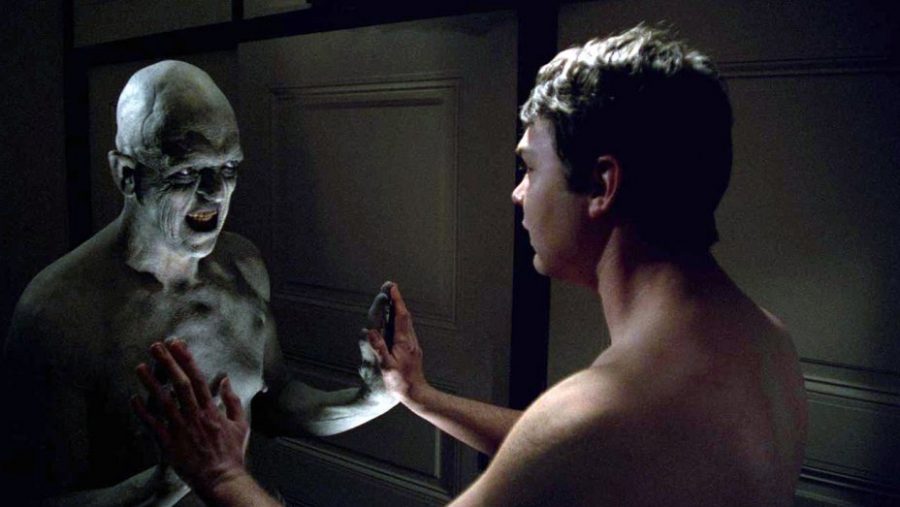As part of Dead By Dawn Horror Festival
That The Evil Within exists as a finished product at all is almost as unbelievable as anything that occurs onscreen. The passion project of oil-heir Andrew Getty, he pumped an estimated $5m dollars into the film over the course of thirteen years until his untimely death at 47 in 2015. Much of the shooting was carried out between 2002 and 2005, and tinkered with in an obsessive post-production process. It has been pieced together posthumously into something approaching coherence by loyal producer Michael Luceri.
What exists is a baffling folly that should have been hamstrung by its own central conceit. Dennis, a boy with learning difficulties is given a mirror by his elder brother. He begins to talk to his own reflection, and a demon right out of his own nightmares. They convince him to begin a murder spree that will “make him smarter.” It’s misconceived on every level, not least in the jaw-dropping, though totally committed performance of twitching, stuttering grotesquerie from Frederick Koehler. Unsurprisingly, given its tortuous route to the screen, it’s a total mess on any sane level. It would be easy to write it off as a bewildering curio like The Room.
And yet, there’s something there. Perhaps it’s the sweaty reek of dedication and sincerity that oozes from the screen. Whatever the lack of experience and skill, Andrew Getty had a vision that appears through the cracks. There’s a DIY aesthetic that screams pure cult on show throughout, realised through a mix of frankly awful computer effects, and genuinely unnerving practical work. There are moments that stick in the brain, such as a terrifying animatronic band playing at a pizza restaurant, and Michael Berryman’s demon literally unzipping a dreaming Dennis and climbing into his skin. Such moments are nightmare fodder from an off-kilter auteur. It also has that wonderful quality of being unintentionally hilarious.
It’s difficult to recommend The Evil Within, but simultaneously it’s easy to recognise the interest it will arouse in those knowledgeable of exploitation cinema, or even outsider art in general. It’s rare to see someone’s own personal demons thrown onto the screen quite so literally and it’s mainly for that reason it isn’t a complete travesty. As Neil Young once sang, “It’s better to burn out than to fade away,” and Andrew Getty went out blazing.
